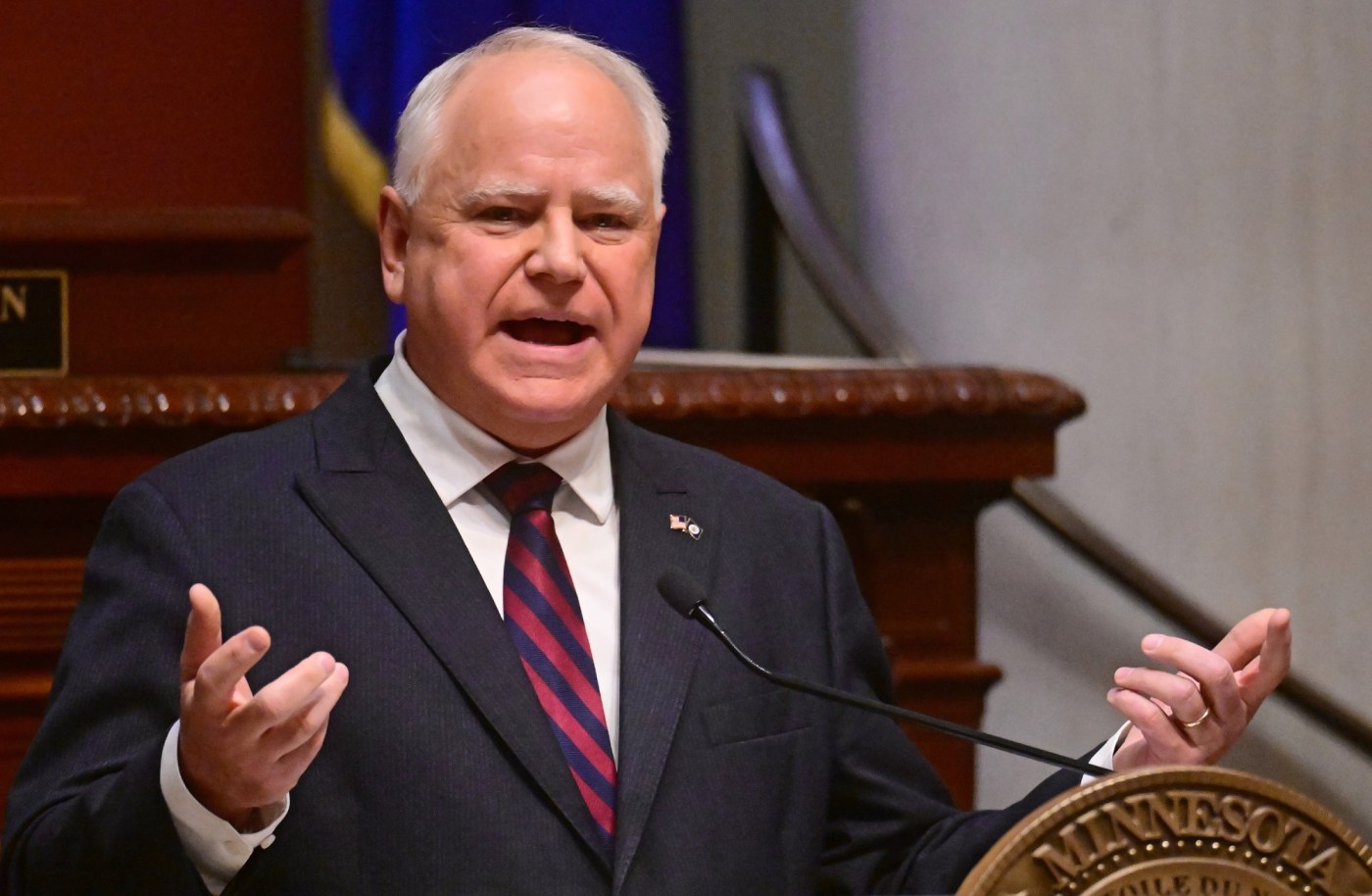
Gov. Tim Walz signs executive order, proposes legislative package to address fraud
“Be skeptical and proactive,” Gov. Tim Walz repeated while announcing a new “anti-fraud” legislative package and signing an executive order to create a centralized fraud investigations unit Friday morning at the State Capitol.
Ahead of the 2025 legislative session, Walz said his proposals are aimed at preventing, detecting, investigating and penalizing fraud in the state. The investigations unit will pursue fraud and financial crimes through the Bureau of Criminal Apprehensions.
Among this his legislative proposals — use AI technology to find fraud, give agencies broader authority to questions suspicious behavior and increase criminal penalties.
“State government in many cases is used to being reactive in situations,” Walz said. “We need to change that attitude to being much more proactive on this.”
Under Walz’s executive order, fraud investigators from the commerce department will move to the BCA to create a unit to look into activity involving state programs.
The proposals come after major fraud investigations involving Feeding Our Future, which authorities claim exploited the Federal Child Nutrition Program during the COVID-19 pandemic, as well as cases involving Medicaid and autism service providers in Minneapolis and St. Cloud.
Legislative proposals
Key among the governor’s legislative proposals:
• Adding nine staff members to the Attorney General’s Medicaid fraud unit.
• Giving agencies expanded authority to stop payments from going to people and entities suspected, charged, or convicted of fraud or financial crimes.
• Using AI to to detect and prevent fraud.
• Creating a “Theft of Public Funds” statute that increases criminal penalties by 20% compared to the existing “Theft” statute.
Walz said, in many cases of fraud, state agencies suspected something was wrong, but did not feel they had the authority to act.
The anti-fraud proposals are expected to cost $39 million from 2026-2027 and $15 million from 2028-2029.
The role of AI
The proposed AI pilot would analyze data to help detect and flag payment anomalies for Medicaid providers through the Department of Human Services. It will be operated by Minnesota Information and Technology in partnership with experts.
“This AI tool, if we’re able to implement it, can look at and identify those patterns and trends so we put eyes on them more quickly regardless of where that fits in the framework of state government,” said Drew Evans, BCA superintendent.
The tool is meant to spot payment problems before a complaint or claim is submitted, using generative AI, according to Tarek Tomes, commissioner of Minnesota IT Services
Reaction
Walz said Minnesota is known for having programs that improve people’s lives but fraud has been a present issue for both government and non-government-funded programs.
“We have the opportunity to both continue to be that generous state, continue to have programs that show results, but also make sure that the safeguards are in place,” Walz said.
The governor said that some of the proposals were presented to the Republican party during the last legislative session, but they didn’t find support. He added that he isn’t opposed to hearing other ideas.
“I’m open to it and I would say that to anyone out there,” Walz said. “If anyone has any ideas out there that would really make a difference on this, we’re open to it.”
House Speaker-designate Lisa Demuth, R-Cold Spring, said that while she’s glad to see the governor now putting forward proposals and actions to prevent fraud, the GOP previously tried to draw his attention to the issue. She noted the FBI raiding autism service providers in Minneapolis and St. Cloud as reported last month.
“If you remember just a few weeks ago on the autism increase of spending, the FBI raid, everything — I had a statement that went out that said, ‘When we know there’s fraud from one agency in the state we need to pause the payments for other agencies’ and when the governor was asked about that he said he couldn’t do it,” Demuth said.
Lisa Demuth (Courtesy photo)
Demuth said Walz did not include the GOP in discussions surrounding the proposal and announcement.
“Well the governor has had full Democratic control in the state of Minnesota over the last two years and if he had wanted to take action and have taken it seriously, he would have already done an executive order like you saw today, or he could have done legislation that would have changed it,” Demuth said. “Again I’m happy that he’s finally taking it seriously and we are looking forward to solutions that will help stop the fraud.”
The 2025 legislative session begins Jan. 14.
Related Articles
Friends, colleagues remember groundbreaking Minnesota lawmaker Mary Murphy
Congressional Democrats pick Craig to lead caucus on House Agriculture Committee
6 voters testify they voted for Democrat in contested Shakopee-area House race
Minnesota benefactor has bald eagle on cusp of winning status as national bird
North Dakota approves construction of proposed carbon pipeline, underground CO2 storage


